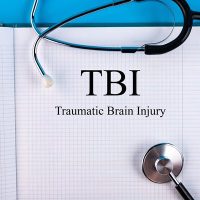Traumatic Brain Injury Is More Than Just A Headache

Seatbelts and driver and passenger side airbags save lives, and so do motorcycle helmets. With these items of protective equipment, you can greatly reduce your risk of dying in a car accident or motorcycle crash. Hitting your head against a structure in the car, or hitting the pavement, even with a helmet on, can still cause injury. Even if you manage to avoid a skull fracture, the bump on the head that you sustain during a motor vehicle collision can still cause a concussion or the more severe form of concussion, which is known as traumatic brain injury (TBI). In real life, concussion and TBI do not always look like they do in the movies. You might not lose consciousness from the initial bump on the head, and it might not even hurt very much. You might even think that you are not injured at all until you start having symptoms several hours later. A Columbia car accident lawyer can help you if you got a diagnosis of concussion or TBI shortly after being involved in a car accident.
A Minor Bump on the Head Can Cause a Concussion or TBI
In general, concussion and minor TBI causes only brief loss of consciousness, or maybe even no loss of consciousness at all. Severe TBI, the kind that requires weeks of hospitalization, usually causes loss of consciousness that lasts for more than a few minutes and can even cause seizures. If you think that you only sustained a little bump on the head that left you feeling more surprised than injured, you should still go to the emergency room to be examined. You might feel much worse the following day. From a legal standpoint, you are in a much stronger position when it comes to getting compensation for your injury-related medical bills if your medical records clearly document how and when the injury occurred.
Symptoms of Brain Injuries
Brain injuries, including concussions and more severe forms of TBI, can cause a variety of symptoms. These are the more common ones:
- Headache
- Sensitivity to light and sound
- Dizziness
- Nausea
- Difficulty concentrating
- Mood changes such as depression, anxiety, or irritability
- Symptoms of hormonal imbalance, such as increased urination or changes in appetite, temperature perception, or menstrual cycle
The acute symptoms go away after a few days, but the chronic ones linger. For example, some people may only experience drowsiness and nausea for the first few days after the injury, but they may continue to suffer from chronic headaches for months afterward. The symptoms of concussion and mild TBI eventually go away on their own, but they can be disruptive to your daily routine and interfere with your ability to work.
Let Us Help You Today
The car accident lawyers at the Stanley Law Group can help you if you have been diagnosed with concussion or TBI after a car or motorcycle accident. Contact The Stanley Law Group in Columbia, South Carolina or call (803)799-4700 for a free initial consultation.
Source:
mayoclinic.org/diseases-conditions/traumatic-brain-injury/symptoms-causes/syc-20378557
